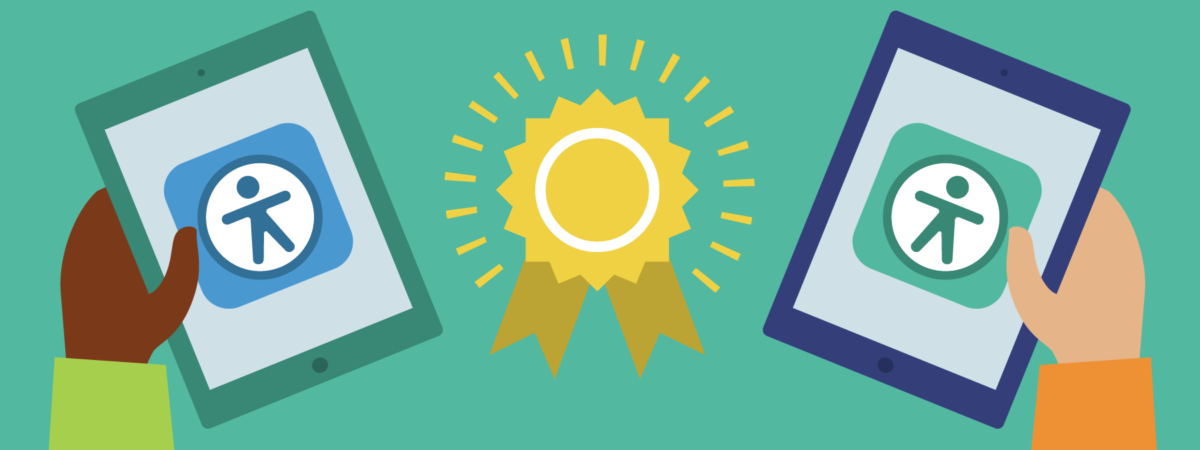
As the creators and champions of Universal Design for Learning (UDL), CAST joined with Digital Promise to develop a UDL Product Certification that is a signal to educators and districts of which edtech products enable meaningful participation from all students, as outlined by the UDL framework. Together, we’ve spent the past year working with educators, learners, and product teams to develop and pilot this certification.This product certification will be issued by CAST and hosted on Digital Promise’s Product Certification Platform.
The UDL certification builds on Digital Promise’s commitment to advancing conscientious edtech design for students of all backgrounds and abilities. With over 30 products having already earned our Learner Variability Product Certification, education leaders and edtech vendors alike might wonder how these two awards differ from each other.
At first glance, they may seem similar, both certifications shine a light on products that are intentionally designed to meet the needs of each learner. Both certifications also address equity and inclusion. However, they do so from two distinct frameworks that ultimately complement each other by pointing toward intentionally designed, research-based, student-centered products. In this way, each framework provides strategies that customize each learning experience so learners can meet their potential in school and beyond.
Specifically, the Learner Variability certification focuses on unique and intersecting aspects of variability in learners to ensure the product design addresses the needs of the whole learner. The UDL certification ensures that accessibility is prioritized in the product design and that the product is aligned to the UDL Guidelines, providing multiple ways for learners to engage with the learning experience, access the learning materials, and express their knowledge and skills.
The Universal Design for Learning certification is built on the UDL Guidelines, developed and maintained by CAST, which require products to provide options for:
(4) Physical Action, (5) Expression & Communication, (6) Executive Functions
Learn More(7) Recruiting Interest, (8) Sustaining Effort & Persistence, (9) Self Regulation
Learn MoreFinally, earners of the UDL certification may be awarded one of three levels. Level 1 confirms exemplary design in alignment with UDL Guidelines, and Levels 2 and 3 provide increasing opportunities for customer validation of the product’s design through a UDL lens.
Digital Promise’s Learner Variability Product Certification emerged from our Learner Variability Project (LVP) and is built on our whole learner framework found in the Learner Variability Navigator (LVN). LVN is a free and interactive resource that curates learning sciences and developmental research. This certification is based on our findings that supporting the whole learner involves designing a learning experience for variation in four key areas:
The LVN is designed to complement any curriculum and lesson plan, making it easy for educators to differentiate the learning experience to meet the diversity of learners and their unique needs. Applicants must identify how the product was developed to respond to the variation in these areas, as well as how features in the product can be adjusted by users to account for such differences.
A commitment to transparency in the marketplace is central to this certification as well. Earning products are required to have a public-facing document that explains how the tool has been designed to support variation among learners.
Perhaps you’re a district leader looking for the right tools for your students, or you work on an edtech product team seeking a way to stand out and get validation for your intentional design choices. Either way, you’re likely reading this because you understand the importance of designing learning opportunities around accessibility and inclusion. The UDL and Learner Variability certifications each signal alignment to unique equity-focused frameworks, and complement each other through a vision of how equitable classrooms can be built and sustained.
Apply today to the Universal Design for Learning and Learner Variability certifications.
Discover Digital Promise’s other Product Certifications here.
CAST’s mission is to transform education design and practice “Until learning has no limits®.” CAST’s primary levers of change are the Universal Design for Learning (UDL) framework and the UDL Guidelines. In addition, the National Center on Accessible Educational Materials at CAST provides accessibility guidance to vendors and educators, including information about understanding the VPAT® and best practices for completing an Accessibility Conformance Report (ACR).

We want to hear from you!
Please take this 5-minute survey and help us serve you better.
